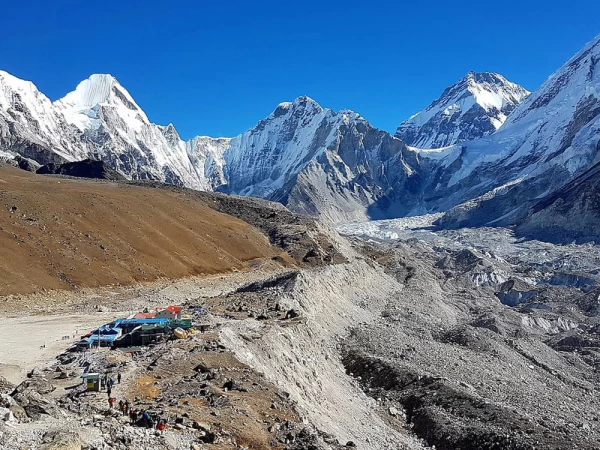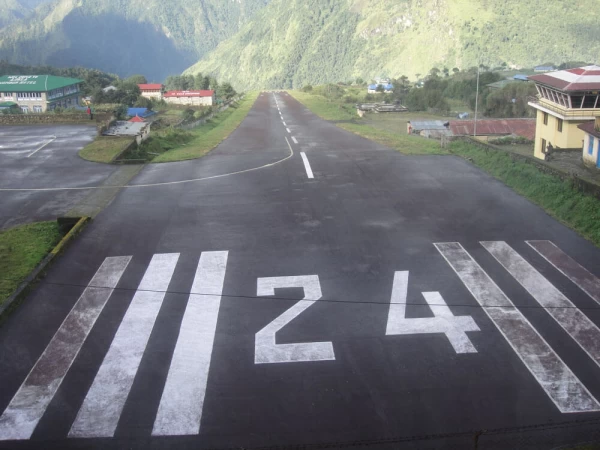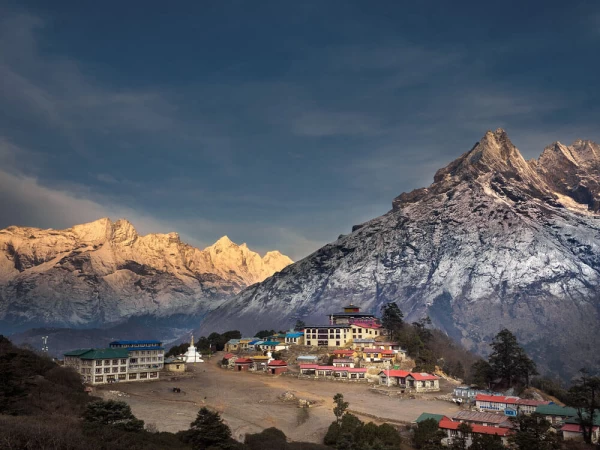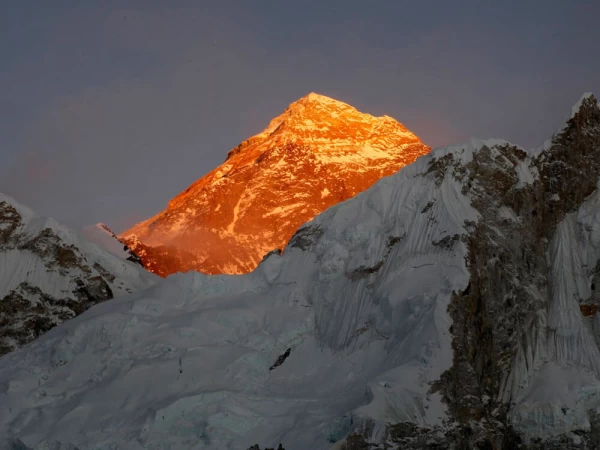Trip Overview
The Everest Base Camp Trek is a legendary 16-day adventure that takes trekkers through the breathtaking Khumbu Valley, leading to the iconic base camp of the world’s highest peak, Mount Everest. Located in Sagarmatha National Park (a UNESCO World Heritage Site), this trek offers an incredible opportunity to explore Sherpa villages, Tibetan Buddhist culture, and stunning Himalayan landscapes.
The route traces the footsteps of explorers like George Mallory and Andrew Irvine, whose expeditions in the 1920s set the stage for the first successful summit of Everest in 1953 by Edmund Hillary and Tenzing Norgay Sherpa. Their pioneering efforts sparked global interest in the region, making Everest Base Camp a popular destination for trekkers from around the world.
This trek provides unparalleled views of Everest and surrounding peaks, taking you through traditional Sherpa communities where you’ll experience their way of life, culture, and renowned hospitality. With dramatic scenery and a rich history, the Everest Base Camp Trek is an unforgettable experience that attracts thousands of trekkers and climbers every year.
Trekking Highlights
- Kathmandu: Explore the vibrant capital of Nepal, rich in history and culture, and the starting point of your adventure.
- Lukla Airport: Experience the thrilling landing at one of the world’s most exciting airports, located at 2,840 meters.
- Sherpa Villages: Trek through traditional Sherpa settlements, gaining insights into their unique culture and way of life.
- Hillary Suspension Bridge: Cross this iconic bridge, a symbol of the Everest region.
- Namche Bazaar: Rest in the bustling capital of the Khumbu region, where you’ll acclimatize and explore.
- Phortse Village: Stay in the picturesque village with stunning views of terraced fields and surrounding mountains.
- Tengboche Monastery: Visit the famous Tengboche Monastery, a spiritual hub for Sherpas with magnificent views of Mount Everest and Ama Dablam.
- Ama Dablam & Everest Views: Enjoy close-up views of iconic peaks like Ama Dablam, Thamserku, and Everest.
- Kala Patthar: Reach the highest point of the trek at 5,545 meters, offering breathtaking panoramic views of Everest and the surrounding Himalayas.
- Lukla Flight: Conclude your journey with a thrilling flight from Lukla back to Kathmandu, filled with unforgettable views.
What to Expect on the Adventure?
The Everest Base Camp (EBC) trek takes you to the foot of the world's highest peak, Mount Everest, and offers some of the most stunning views of the Himalayas. This 16-day trek follows the classic route through the beautiful Khumbu region and allows you to experience the breathtaking landscapes, Sherpa culture, and rich history of the Everest region.
Starting from the vibrant capital of Kathmandu, you will take a thrilling flight to Lukla, a small mountain town, to begin your trek. From Lukla, you will make your way through traditional Sherpa villages, crossing suspension bridges, and trekking through lush forests and alpine meadows. As you gain altitude, the views of Everest, Ama Dablam, Lhotse, and other peaks become more impressive.
Along the route, you will pass by iconic landmarks such as the Hillary Suspension Bridge, Tengboche Monastery, and Namche Bazaar. Each of these places holds cultural and spiritual significance to the Sherpa people. Namche Bazaar, the main town of the Khumbu region, serves as a popular rest and acclimatization point.
The trek will also take you through high-altitude areas, where the air is thin, so acclimatization is key to avoid altitude sickness. After several days of trekking, you will reach Everest Base Camp (5,364 meters), where you’ll be treated to magnificent views of the surrounding peaks. The highest point of the trek, however, is Kala Patthar (5,545 meters), which offers an unparalleled panoramic view of Mount Everest and the surrounding mountains.
If you're interested in a challenging and rewarding experience, the Everest Base Camp trek offers an incredible opportunity to witness nature's grandeur while exploring the unique culture and heritage of the Sherpa people.
Get Ready for the Trek
The Everest Base Camp trek is considered moderate to challenging and is suited for trekkers with a reasonable level of fitness. While it is accessible to trekkers with basic experience, it’s essential to be in good physical condition, as the trek involves long days of walking at high altitudes. The average trek duration is around 6-7 hours per day, with some sections being particularly strenuous due to the high elevation.
For beginners, the EBC trek can feel physically demanding due to the 5,545-meter altitude of Kala Patthar, which may cause altitude sickness if proper acclimatization isn't followed. Trekkers need to be prepared for both mental and physical challenges, including extended hours of walking on rocky terrain and narrow trails.
Physical training requires cardio fitness, strength, and endurance. Your training should focus on:
- Cardiovascular Endurance (4–5 Days a Week), running, cycling, swimming, stair climbing (increase intensity over time). Aim for 45–60 minutes of continuous activity to build stamina.
- Hiking with a loaded backpack (Once a Week) train on hilly or mountainous terrain with a 10-12 kg (22-26 lbs). Aim for 5-6 hour hikes to simulate trekking days.
- Strength Training (3 Days a Week), leg strength: squats, lunges, step-ups (for uphill endurance).
Understanding Altitude Sickness
Altitude sickness is a significant concern during the Everest Base Camp trek, as you will be trekking up to 5,545 meters. Symptoms include headaches, nausea, dizziness, difficulty breathing, and fatigue. To prevent altitude sickness, it’s important to follow a gradual ascent, rest frequently, and stay hydrated. Avoid alcohol and smoking atleast on the way up, as it may affect your acclimatisation.
Some tips for managing altitude sickness:
- Ascend slowly and allow your body to adjust to the increasing altitude.
- Stay hydrated, but avoid drinking alcohol or caffeine.
- Eat well to ensure your body has enough energy for the trek.
- If you feel symptoms of altitude sickness, report them to your guide immediately.











.webp)